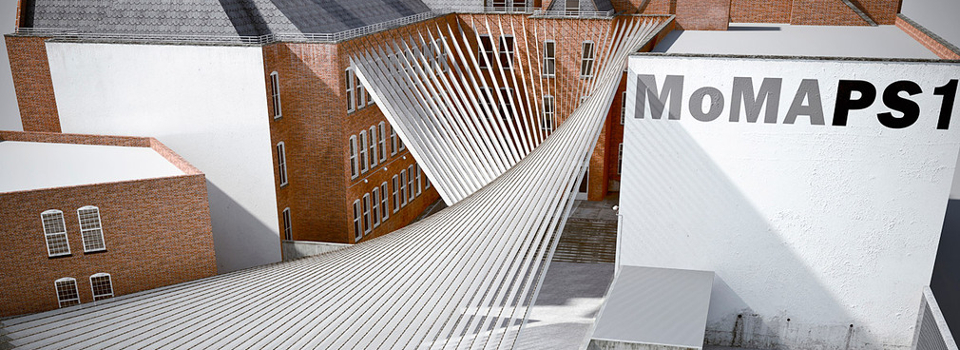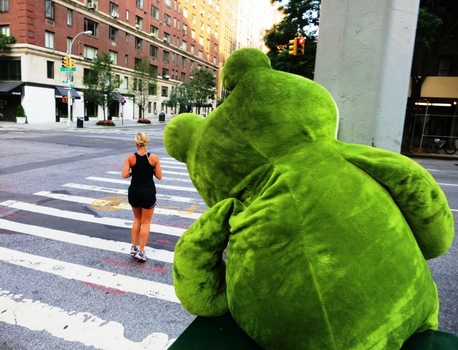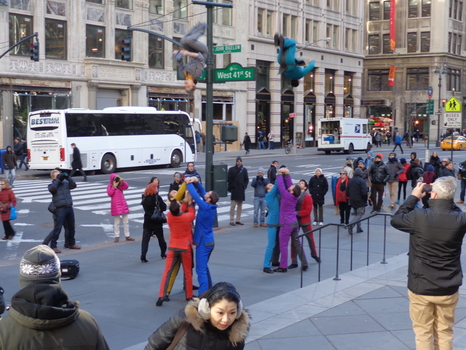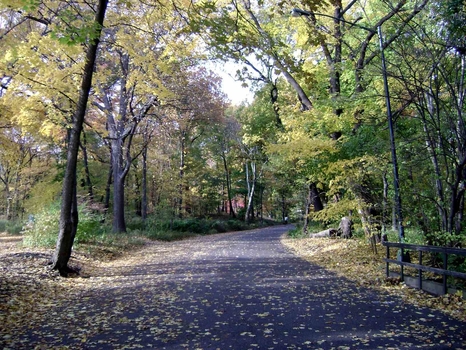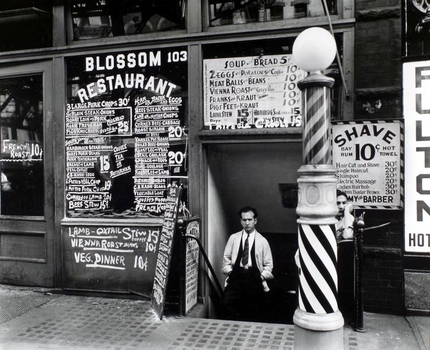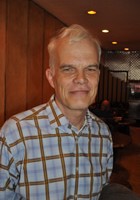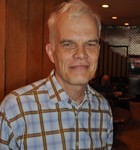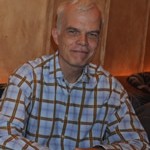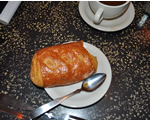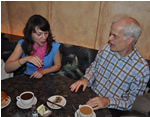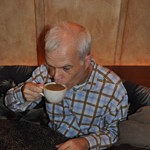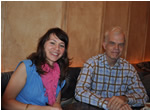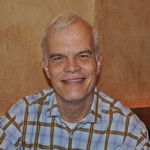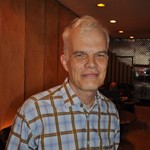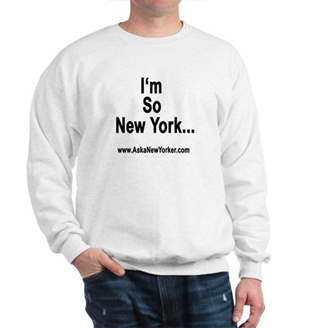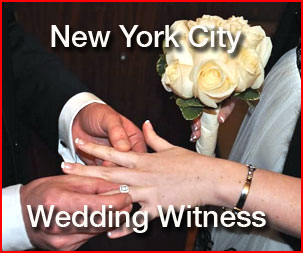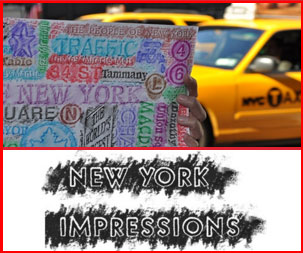Richard Brookhiser wrote his first cover story for the National Review in 1969,
exposing what he called the “phony” quality of a Vietnam War protest
at Irondequoit High School in Rochester, NY. The sentiment was not uncommon
for the conservative magazine, but the author was—Brookhiser was 14 years
old.
After earning his bachelor’s at Yale in 1977, Brookhiser moved to New
York to work for the National Review full-time under the tutelage of its founder,
William F. Buckley, Jr. Brookhiser soon met his future wife, noted psychotherapist
and confirmed liberal Dr. Jeanne Safer, and the two have lived in surprising
harmony now for over 30 years. His list of publications includes over a dozen
books, most of which concentrate on the nation’s founding, and he’s
the recipient of an honorary Ph.D. from Washington University and a National
Humanities Medal. He’s also written and hosted two founding-era documentaries
for PBS and has appeared several times on The Colbert Report—all while
continuing his work as a senior editor at the National Review. He sat down with
Ask A New Yorker at The Coffee Shop in Union Square—where he is a long
time regular—to discuss politics, James Madison, and thriving as a conservative
in a notoriously liberal town.
AANY: What struck me in your memoir Right Time, Right Place: Coming of
Age with William F. Buckley Jr. and the Conservative Movement (2009, Basic
Books) was your abundant love for New York City. It comes across as a real romantic
connection. But you say it took some getting used to, that you came here with
“all the prejudices of upstate.”
RB: The view I had of New York before moving here was that it was dangerous
and dirty. I grew up in a suburb, and New York seemed different and puzzling
and possibly threatening. So how does one get used to it? Well, I worked in
Midtown, so I was always seeing the Empire State Building and the Chrysler Building,
and you’d have to be blind not to be excited by those.
AANY: You also credit your wife for opening your eyes to some lovely parts
of city life. You say, “She led me further in, to Szechuan restaurants,
coffeehouses with pressed-tin ceilings, street fairs on Bedford Street when
they were still good, belly dance clubs.” That was the late ‘70s.
Can you still find those little hole-in-the-wall spots today?
RB: Oh sure. There are still what I consider New York coffee houses. Starbucks
is fine if you are in an airport somewhere, but we are not in an airport somewhere.
We are in New York City. We can do better than that. I think probably my favorite
one is Café Roma in Little Italy. A real coffee house has to have those
little hexagonal tiles on the floor, and it has got to have a pressed tin ceiling.
AANY: I’ve only lived here for ten years, but there is no question that
the street fairs have gone downhill.
RB: The last things you used to be able to get at street fairs were socks and
spices, but I’m not even seeing those lately. I can remember when there
were some interesting used booksellers. There’s still one at Washington
Square Park on the southeast corner, he’s pretty good, but you don’t
see guys like that at street fairs anymore. But, look, I don’t want to
sound like some old fart by saying it was better back in the ‘70s because
a lot is much better now. When I moved to Union Square it was a grim, grim place.
It wasn’t scary, but it was grim, and it’s not like that anymore.
AANY: It seems like there are two contrasting elements coming to a head—the
unique hole-in-the-wall New York and then the more sanitized New York. Both
have their pros and cons.
RB: Well, the thing that holds them both together is the concentration and
the energy of the city. Everything is so jammed together. Even if everyone is
rushing to H&M and Duane Reade, they’re still rushing, and they are
still on top of everybody else.
AANY: You are a conservative living in a liberal city. Your work environment
is conservative, so you’ve got your posse, but how do you fair socially?
RB: Well my wife is a liberal Democrat, so I have it right at home. Look, I
went to Yale. An Ivy League campus is a liberal place, so it’s not like
this was new for me. I also write about politics professionally, so Democrats
competing for office are interesting simply because they are politicians. I
happen to have lived through a very interesting time in New York because of
Giuliani. Even though he was a liberal Republican in many ways, and an extremely
liberal one, in many other ways he was an extremely conservative one. But he
figured out how to present himself so he could get elected and reelected mayor,
and I believe he really saved the city. Being a conservative, I saw it coming
ahead of time. One of my friends was the editor of the Manhattan Institute’s
City Journal, and that was one of the first publications to tell the
world about broken windows policing. My friends were publishing these articles,
and I was reading them, and we were all talking about them, and then low and
behold the new mayor of New York started paying attention too. That was a unique
example of having an impact. And the characters here are just interesting. When
I first came to the city, Cuomo was running against Koch for mayor. Koch beat
him in the Democratic primary, then Cuomo got his revenge by beating him in
‘82 for the gubernatorial primary. They were two interesting local characters,
just as performers and personalities. I somewhat agreed with Koch, I certainly
didn’t agree with Cuomo about anything, but he was still worth watching.
He always put on a good show. It’s fun because the politicians here tend
to be really out there. I’m sure you’ve heard the joke that in New
York when someone says “Fuck you” it means “Have a nice day,”
and in Los Angeles when someone says “Have a nice day” it means
“Fuck you.”
AANY: That’s a good one.
RB: It’s the New York style, a fusion of Irish and Italian and Jewish
and their ways of disputing and arguing. That is the caricature of New Yorkers,
but it is also based on a reality. And it goes back even before those immigrant
groups. There is a great quote from John Adams when he’s going to the
first Continental Congress in 1774, and it’s the first time he’s
ever left Massachusetts. He comes through New York and he writes to Abigail
and tells her about how New Yorkers talk all at once. This is when the English
and Dutch were living here, so it seems like there is something in the water
that was just causing that rapid fire. I think that it also has something to
do with the fact that this was always such a commercial place. Our founding
myth is the purchase for $32 from the Indians. Boston and Philadelphia were
religious experiments. Boston is the City on the Hill, and Philadelphia is the
City of Brotherly Love, but New York was the city of buying and selling.
AANY: So, just how conservative are you? Economic conservative? Social conservative?
Do you have a label for yourself?
RB: I’m social, I’m economic, I’m foreign policy. I think
the Tea Party is great. I am conservative. I’m not neoconservative, I
was conservative all along.
AANY: What is your stance on gay marriage?
RB: I don’t think it exists. I mean yes, there are laws in different
states, but it’s not marriage. It is a civil partnership that is being
called a marriage.
AANY: Because of the semantics of the word marriage?
RB: Right.
AANY: So it is a language thing?
RB: It is a language thing and a categorical thing. Marriage is between a man
and a woman or, depending on your culture, men and one woman or one man and
many women, but it’s between the sexes.
AANY: Should there be a new word for same-sex marriage?
RB: Maybe.
AANY: How do you handle the stereotype of the elitist coasts? Are you an elitist
conservative because of your education?
RB: I guess I have to be. What else can I do? Should I try to be less smart?
If that makes me an elitist, I’m sorry. We sometimes get this feedback
on our website, calling the National Review elitist rhinos, that kind of thing.
Look, there are all sorts of obvious differences in America, of region and religion
and class and belief, but we’re still not that different from one other.
AANY: Do you feel alarmed by the amount of hate in American politics?
RB: A little alarmed. I’m not really alarmed yet, but we could
take a breath. Everybody could take a breath. People always ask me what the
founders would think of our politics if they came back now, and I always tell
them—and it always gets a laugh—that they’d say, “You’ve
cleaned it up!” It’s less crazy, it’s less frantic, it’s
less dishonest. I think we’re getting worse, but I don’t think we’re
yet at the level of the 1790s.
AANY: Can you think of a recent example of the hate going too far?
RB: The Bush/Hitler thing, the sort of shoving together of their two names.
And Obama is not a Muslim, and he’s not a Marxist. I mean I think he’s
very left wing. I think he’s an Obamaist. Fine, that’s better than
being a Marxist. And Bush was not Hitler. That’s just bullshit.
AANY: You support the legalization of medical marijuana and are very open about
using it when you were being treated for testicular cancer. Any developments
on that front?
RB: I support it. I hope it happens. It continues to win when it’s put
to a vote in referenda. I don’t think the record is perfect, but it’s
certainly an overwhelming record of success, and these are in states that are
all over the place. If anyone finds themselves in a medical situation or has
someone in their family who’s in a medical situation, they will know right
away that this issue is important. For any doctor or nurse in oncology, this
is just a matter of course. They’ll say don’t smoke it in the hallway
or something like that, but of course they’ll suggest it and tell you
about patients who have done it. For a while, it seemed that Baby Boomers would
address it since they all lit up in college, but Clinton and Bush were our Baby
Boomer presidents and nothing happened. And now Obama is maintaining the same
policies. That’s just the way institutions are. It takes a while to nudge
them from their path, but we just have to keep yacking about it.
AANY: Could you apply that same philosophy to gay marriage?
RB: Well, of course. That’s what the advocates are thinking, and they
can point to successes that they’ve had. In the Declaration of Independence,
Jefferson said that prudence will dictate that governments should not be changed
for light or transient reasons. Right there, he’s recognizing the fact
that people in general prefer to live with things the way they are rather than
continually mixing them up. That is not always a bad thing, but it means that
if something does go wrong, it takes a lot of huffing and puffing to try to
fix it.
AANY: So, let’s talk a little it about your latest book, James Madison.
My brother-in-law and his wife both work at Montpelier, and I know you went
there for research. What else did you do to prepare for the book?
RB: Well, I got the best standard recent biography, which for Madison is Ralph
Ketcham. I’ve read a lot of big deal founder biographies at this point,
and I’d say that his is the best. You also make yourself familiar with
the Library of Congress website where you can read all the correspondence. Fortunately,
most of these guys had good handwriting. Going to Montpelier was very, very
valuable. I got to see his grave. I was told that the obelisk at his grave sight
was not put up until 21 years after he died. I asked what was there before that
and the man who was taking me around told me that before that it was just the
family plot. I thought that was fascinating, especially compared to Jefferson
who had drawn a picture of what he wanted his grave to look like, what the dimensions
should be and what it should say, but Madison just went back to his family.
He grew up in this tight, tight family where he really learned how to play well
with others, and that is something he carried into his political life.
AANY: The Times said that your book was a great introduction for people who
were making their first acquaintance with Madison. Does that sit well with you?
RB: Oh yeah sure, you bet. There are a lot of people out there who have made
no acquaintance yet, so if I’m the first one, that’s fine. My publisher
told me one of the places it was selling best was Costco. That’s terrific.
AANY: Who will be your next subject?
RB: I don’t know yet. I’m hoping to do a documentary on Jefferson.
Michael Pack and I are raising money. We’re rattling the tin cup, so if
any of your readers are millionaires who love Thomas Jefferson, please have
them get in touch with me.
AANY: You were just on The Daily Show with Jon Stewart to promote the book.
What is the experience of going on Stewart or Colbert? Is is just promotional
grind or is it fun? Can you relate to these guys?
RB: Oh, it’s fun. Colbert of course, he’s a character, so that’s
like being in a play where you haven’t been given the script. You just
have to know that going in and relax into it. He’s the one who’s
going to have all the laugh lines. But he’s not out to get you. He likes
his guests, that’s why he has them on. The one sort of odd thing that
you wouldn’t know unless you were actually in the studio is that the audience
is warmed up by some other comic for like a half an hour, so it’s like
the coliseum in there by the time Colbert or Stewart comes in. It’s a
little disconcerting to walk into that, but you just do it. Jon Stewart is very
different because he’s not a character, he’s just himself. It was
clear to me that he liked history and he liked this time period, and so we had
a very straightforward talk. He made a few jokes about Madison’s height
and how he felt bonded to him because they’re both short. That is actually
an interesting point about Madison, his shortness and slightness. It was a drawback,
but it also helped him in some ways because it made him less intimidating. Maybe
people are a little more comfortable dealing with someone who is clearly five
times smarter than they are if that person is also short and slight—then
they’re not threatened across the board.
AANY: That’s a very good point. Before we go, can you give me a few more
of your favorite New York spots?
RB: Flea Market in the East Village on Avenue A between 9th and St. Marks,
Chinatown Brasserie on Lafayette and Great Jones, i Trulli on 27th between Lex
and Park, and then for really special occasions, The Four Seasons—the
Pool Room is just classic, it’s the futurism of 1959. It’s great.
AANY: That reminds me—I like your quote about nostalgia being baby food
for conservatives and hope being baby food for liberals. Would we all be better
off if we said enough with the romantic ideals?
RB: No, no, no. You can’t give up your ideals, you just have to have
an adult relationship to them.
____________________________________________________________________________________
James
Madison is widely available in bookstores. Mr. Brookhiser’s next project,
a series of webcasts for American History Magazine, will launch in early 2012.

